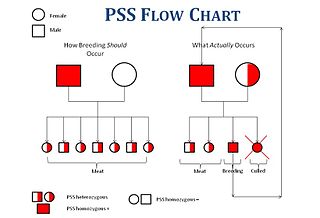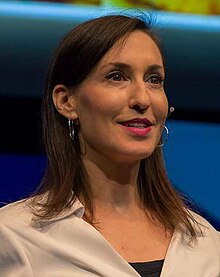
Veganism is the practice of abstaining from the use of animal products—particularly in diet—and an associated philosophy that rejects the commodity status of animals. A person who follows the diet or philosophy is known as a vegan.

Vegetarianism is the practice of abstaining from the consumption of meat. It may also include abstaining from eating all by-products of animal slaughter.

People for the Ethical Treatment of Animals is an American animal rights nonprofit organization based in Norfolk, Virginia, and led by Ingrid Newkirk, its international president. PETA says that its entities have more than 9 million members globally.
Some people do not eat various specific foods and beverages in conformity with various religious, cultural, legal or other societal prohibitions. Many of these prohibitions constitute taboos. Many food taboos and other prohibitions forbid the meat of a particular animal, including mammals, rodents, reptiles, amphibians, fish, molluscs, crustaceans and insects, which may relate to a disgust response being more often associated with meats than plant-based foods. Some prohibitions are specific to a particular part or excretion of an animal, while others forgo the consumption of plants or fungi.

Conversations regarding the ethics of eating meat are focused on whether or not it is moral to eat non-human animals. Ultimately, this is a debate that has been ongoing for millennia, and it remains one of the most prominent topics in food ethics. Individuals who promote meat consumption do so for a number of reasons, such as health, cultural traditions, religious beliefs, and scientific arguments that support the practice. Those who support meat consumption typically argue that making a meat-free diet mandatory would be wrong because it fails to consider the individual nutritional needs of humans at various stages of life, fails to account for biological differences between the sexes, ignores the reality of human evolution, ignores various cultural considerations, or because it would limit the adaptability of the human species.

Dog meat is the flesh and other edible parts derived from dogs. Historically human consumption of dog meat has been recorded in many parts of the world.

Evanna Patricia Lynch is an Irish actress and activist. She is best known for portraying Luna Lovegood in the Harry Potter film series.
Women have played a central role in animal advocacy since the 19th century. The animal advocacy movement – embracing animal rights, animal welfare, and anti-vivisectionism – has been disproportionately initiated and led by women, particularly in the United Kingdom. Women are more likely to support animal rights than men. A 1996 study of adolescents by Linda Pifer suggested that factors that may partially explain this discrepancy include attitudes towards feminism and science, scientific literacy, and the presence of a greater emphasis on "nurturance or compassion" amongst women. Although vegetarianism does not necessarily imply animal advocacy, a 1992 market research study conducted by the Yankelovich research organization concluded that "of the 12.4 million people [in the US] who call themselves vegetarian, 68% are female, while only 32% are male".

Marc Bekoff is an American biologist, ethologist, behavioural ecologist and writer. He was a professor of Ecology and Evolutionary Biology at the University of Colorado Boulder for 32 years. He cofounded the Jane Goodall Institute of Ethologists for the Ethical Treatment of Animals, and he is Professor Emeritus of Ecology and Evolutionary Biology at the University of Colorado Boulder.

Dugald Patterson McDougall Semple was a Scottish advocate of simple living and animal welfare, naturalist, prolific author, and fruitarian. He is sometimes credited with co-founding the vegan movement in 1944 without using the term "vegan".

Porcine stress syndrome, also known as malignant hyperthermia or PSS, is a condition in pigs. It is characterised by hyperthermia triggered by stress, anaesthesia with halothane or intense exercise. PSS may appear as sudden death in pigs, often after transport. It is an inherited, autosomal recessive disorder due to a defective ryanodine receptor leading to huge calcium influx, muscle contracture and increase in metabolism.

Josh Balk is the co-founder and CEO of The Accountability Board. Previously, he was vice president of farm animal protection for The Humane Society of the United States (HSUS) farm animal division. In addition, he is a cofounder of Eat Just, a food technology company. Prior to working with HSUS and founding JUST, he was known for his work at Animal Outlook. Balk is best known for leading successful legislative campaigns for farm animals, along with his work with food companies in enacting animal welfare policies that include eliminating gestation crates for breeding pigs and battery cages for chickens. He is also known for his work with the food industry to shift its focus onto plant-based foods.

Why We Love Dogs, Eat Pigs, and Wear Cows: An Introduction to Carnism is a 2009 book by American social psychologist Melanie Joy about the belief system and psychology of meat eating, or "carnism". Joy coined the term carnism in 2001 and developed it in her doctoral dissertation in 2003. Carnism is a subset of speciesism, and contrasts with ethical veganism, the moral commitment to abstain from consuming or using meat and other animal products. In 2020, an anniversary edition of the book was published by Red Wheel.

Carnism is a concept used in discussions of humanity's relation to other animals, defined as a prevailing ideology in which people support the use and consumption of animal products, especially meat. Carnism is presented as a dominant belief system supported by a variety of defense mechanisms and mostly unchallenged assumptions. The term carnism was coined by social psychologist and author Melanie Joy in 2001 and popularized by her book Why We Love Dogs, Eat Pigs, and Wear Cows (2009).

Direct Action Everywhere (DxE) is an international grassroots network of animal rights activists founded in 2013 in the San Francisco Bay Area. DxE uses disruptive protests and non-violent direct action tactics, such as open rescue of animals from factory farms. Their intent is to build a movement that can eventually shift culture and change social and political institutions. DxE activists work to "put an end to the commodity status of animals."

Carnage is a 2017 mockumentary directed by Simon Amstell. Set in the year 2067, when veganism is the norm, the film looks back on meat-eating today. It premiered on BBC iPlayer.
Vegaphobia, vegephobia or veganophobia is an aversion to, or dislike of, vegetarians and vegans. The term first appeared in the 2010s, coinciding with the rise in veganism in the late 2010s. Several studies have found an incidence of vegaphobic sentiments in the general population. Positive feelings regarding vegetarians and vegans also exist. Because of their diet, others may perceive them as more virtuous or principled.
Vegan studies or vegan theory is the study of veganism, within the humanities and social sciences, as an identity and ideology, and the exploration of its depiction in literature, the arts, popular culture, and the media. In a narrower use of the term, vegan studies seek to establish veganism as a "mode of thinking and writing" and a "means of critique".
ProVeg Deutschland is a German non-profit organisation whose goal is to reduce the consumption of animal products. ProVeg Deutschland is part of ProVeg International, which serves as an international umbrella for a group of nationally operating organisations.













